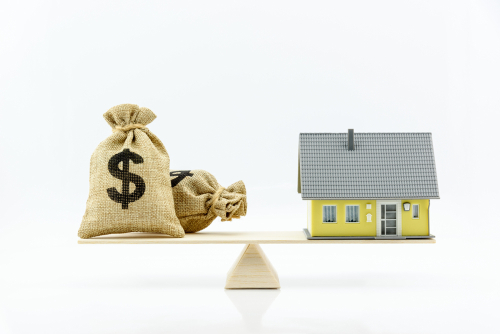
Setting rental rates for your investment property is integral to obtaining a good ROI. However, determining the rental price is not solely up to the owner. Actually, setting the right rent depends on several factors and considerations to best suit your goals. So, below we help you better understand how to set the rent, what circumstances affect how much you can charge, and price versus value to keep great tenants. Check out these helpful tips!
The Determining Factors for Rental Price
Determining how much to charge is not based on one factor alone. Instead, owners must weigh various circumstances to create a big picture of the property’s rental potential. Therefore, take a look at these suggestions below, all of which can help set the right rent.
- Market Supply and Demand
- Property Value
- Neighborhood Location
- Seasonal Leasing
- Cash Flow
- Property Amenities
- Pets or No Pets
Market Supply and Demand
The local market is a huge, if not the most important, determining factor in setting the rent price. Like many other industries, the rental market is driven by supply and demand. That said, owners need to carefully research both what is currently on the market and what has recently rented when evaluating comps. Keep in mind that similar neighborhood properties will command similar rental rates, so comps offer a wealth of information.

Property Value
Typically, owners will base the rent on a percentage of the property’s current value. This requires estimating the current value of the rental home, which may differ from the purchase price. Thankfully, there are websites out there to help owners, for example, check out Zillow’s Home Estimator. Shoot for the rental rate to fall around 0.8% and 1.1% of the home value.
Neighborhood Location
Location, location, location! It is an important factor in all branches of real estate, including rental properties. Homes near desirable amenities such as shopping, gyms, restaurants, local transit, and entertainment can fetch higher rental rates than less convenient locations. A property near many of these items is more desirable and will attract a larger pool of tenants if priced right.
Seasonal Leasing
Leasing seasonality impacts rental prices more than you may realize. This goes back to supply and demand, and since demand is generally higher in Summer, that is the ideal time to lease. Due to the higher demand, prices also tend to be higher, but it is important not to go too high as you could end up driving renters to your competition. Additionally, since it is easier to find a tenant in summer than winter, make sure your rental agreements end at a desirable leasing time just in case tenants do not renew.
Cash Flow
Positive cash flow is always the goal, and the result of several factors will determine whether that goal is attainable. Determining positive cash flow starts with figuring out the difference between the rent you hope to receive and the property expenses. Simply put, if the rent is greater than the expenses, that is positive cash flow. Examples of expenses you may need the rental rate to potentially cover are listed below.

Examples of Property Costs
- Mortgage
- Insurance
- Taxes
- HOA Dues
- Utilities (if not paid by the tenant directly)
- License and Inspection Fees
Property Amenities
Upgraded flooring, new appliances, granite counters, washer/dryer, private parking, and even central air are all considered amenities. If your property already has these, maximize them in your marketing to draw in a quality renter. If your home does not have them while much of the competition does, consider investing in some thoughtful upgrades. Before contemplating any renovations, always ensure you can recoup that cost in added rental value and make smart, durable choices. Rental properties see far more wear and tear than a normal home, which should factor into your decision.
Pets or No Pets
According to the American Veterinary Association, an estimated 50% of all renters have a pet. While allowing pets does add additional risk, consider the benefits carefully. Allowing pets greatly widen your audience and gives your property a competitive advantage over other listings that may not be open to accepting furry family members. Landlords often opt to add monthly pet fees, charge additional security deposit funds, or seek a higher rental rate for allowing pets into their property.
Balancing Profitability with Value in the Rental Price
Maximizing profit is the end goal for property investors. That said, there is a balance needed when setting rental rates. While an owner seeks to turn a profit after paying all expenses, a renter has many options and wants to find the best value for their money. Read on as we take a look at some tips for balancing the pricing equation.
Every Day of Vacancy Costs Money
No landlord wants to have their property sitting vacant for an extended period of time. The number one reason properties do sit on the market is typically price. So, to avoid desperate measures, begin the renewal process for existing tenants early. This gives you more time to prepare in the event they do not choose to renew. If you are marketing for your first tenants, market effectively. Do extensive research on comps and price accordingly while advertising online, through social media, Craigslist, and any local access boards.
Maximizing Profit Does Not Equal Maximizing Rent
Yes, the maximum rent is great, but not if it drives away potential tenants. The goal of renting is to find a tenant who will pay fair value for the property and one who will take care of it. When tenants take proper care of your investment, you, in turn, have lower maintenance costs and fewer headaches. So, while you might be persuaded to sign a lease with a bad tenant willing to pay more, this will mot pay off in the long run. Instead, negotiating some on the monthly rent to obtain a tenant who pays on time and respects the property will decrease costs and, in turn, increase profits.
Pro Tip: Finding a great tenant starts with a thorough tenant screening process. For more information, check out our blog!

What is Price-Value Relationship?
The tenants determine price versus value. Simply put, your investment property is worth what a great tenant is willing to pay for it. Just like owners weigh factors when setting the rent, tenants evaluate the perceived value they receive for the price they pay. The rental market is full of competition, so setting your rental apart with great value at an acceptable rate is crucial. Depending on comparable properties in the area, some thoughtful upgrades or targeted marketing can go a long way in appealing to desirable tenants. Check out these suggestions:
- Upgrades and New Appliances – Who does not love modern appliances or fresh upgrades? If the unit is dated, new stainless steel appliances, a fresh coat of paint, new hardware, or added storage solutions offer added value to potential renters. Upgrades do not have to be a full renovation; even small changes are an asset.
- Utilities Included – If you know how much average utilities run for the property, consider adding that in as part of the rent. For example, if utilities average $125 per month, factor in an additional $150 into your rental rate.
- Furnished vs. Unfurnished – Depending on the local area, renting your property partially or fully furnished may be a bonus for renters. For example, consider some cost-effective options from companies such as IKEA if you have a property known for student housing. This is not ideal for all areas, so get to know your target audience before investing in furniture.
Closing Thoughts
Setting rental rates for your investment property is integral to obtaining a good ROI. As we discussed above, setting rental rates is not a matter of simply choosing a number. Various factors and considerations all need to be evaluated so that the rent you choose meets your long-term investment goals. Are you a property owner looking to increase your profits? At Bay Property Management Group, our experienced team knows that great profits start with great tenants. We handle all aspects of the rental process for our owners, from marketing to tenant screening, rent collection, and addressing maintenance concerns. Contact us today to see how our professional Philadelphia property management can help you get the most out of your real estate investment portfolio.
